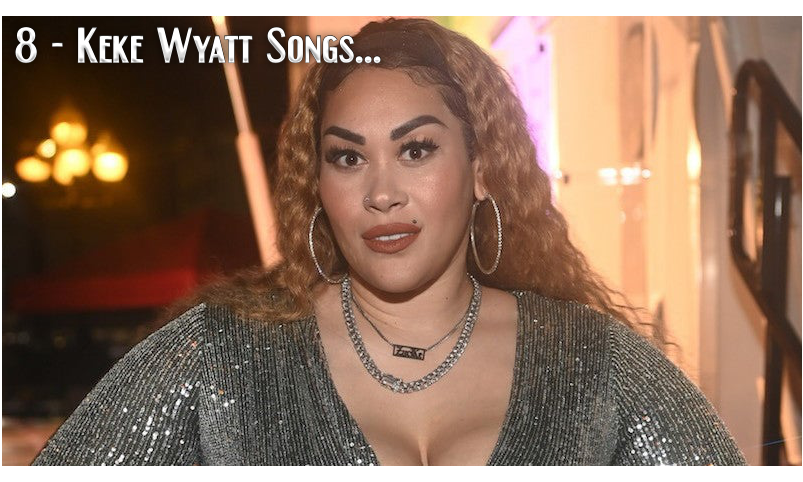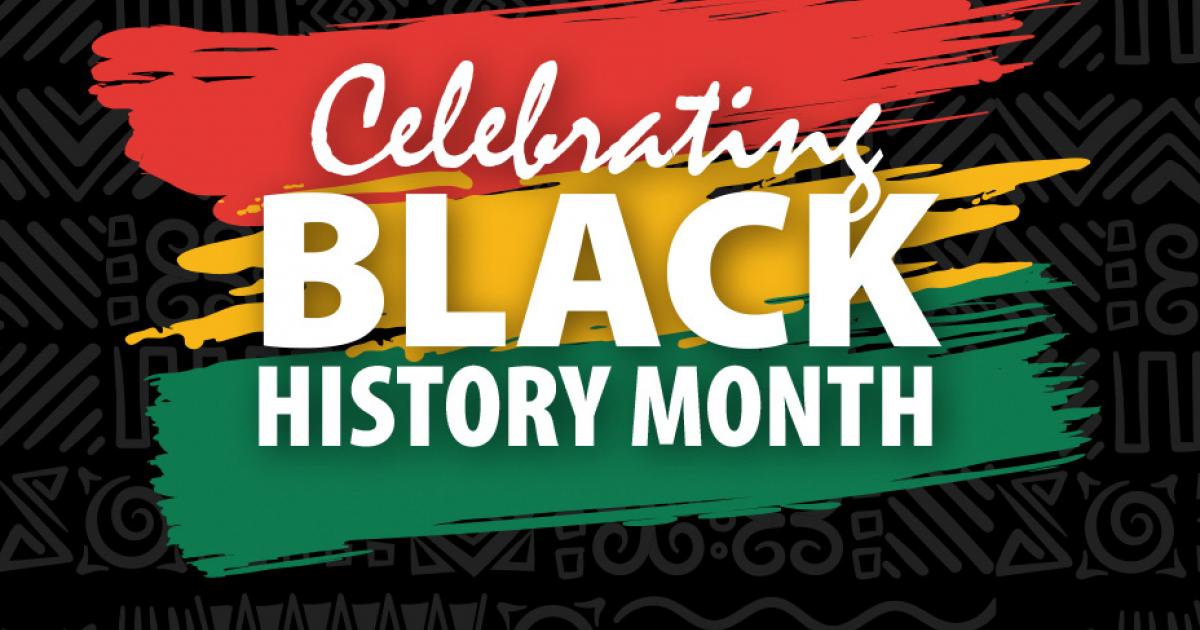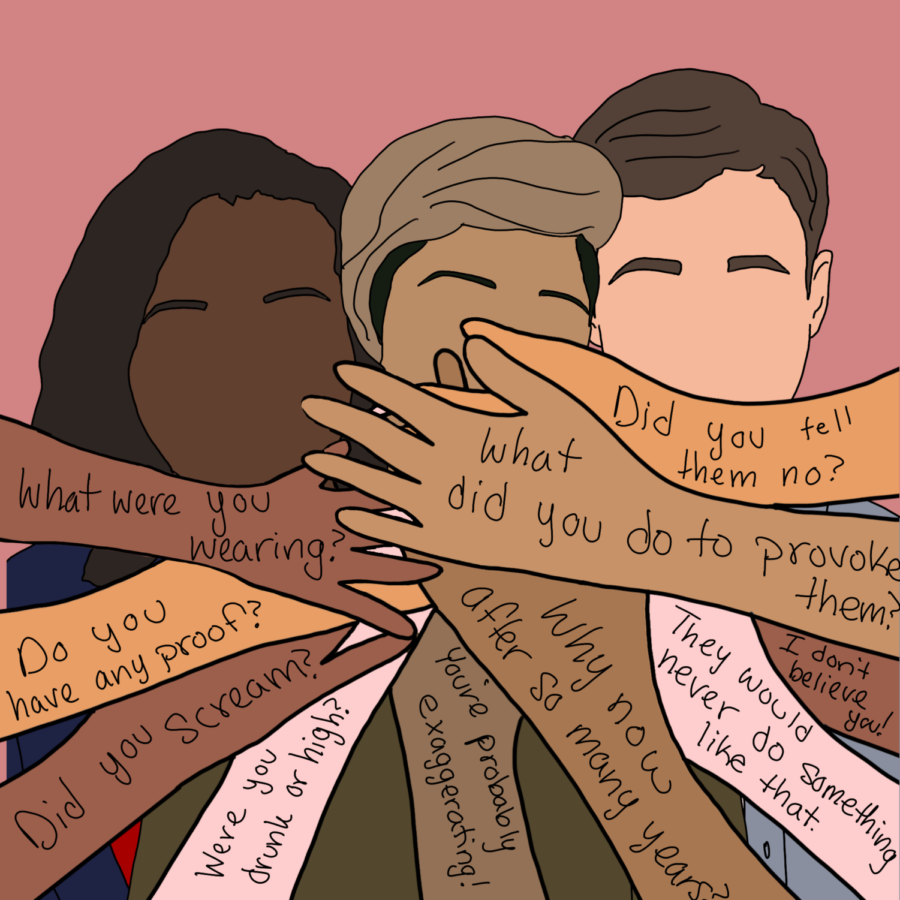(ThyBlackMan.com) Keke Wyatt is one of the most vocally gifted artists in contemporary R&B, yet she often flies under the radar when conversations center around the genre’s most celebrated voices. Known for her remarkable range, emotional intensity, and seamless blend of gospel, soul, and modern R&B, Wyatt has cultivated a body of work that is both technically stunning and deeply heartfelt. Since emerging in the early 2000s, she has consistently delivered music that connects on a human level.
Highlighted here are eight songs that capture the essence of her talent—tracks that reflect the emotional depth, vocal strength, and stylistic versatility that define her artistry. From chart-topping duets to soulful ballads and powerful solo performances, each selection showcases why Keke Wyatt deserves a place among the finest vocalists of her generation.

1. “Nothing in This World” (with Avant)
A defining moment in early 2000s R&B, “Nothing in This World” is the song that put Keke Wyatt on the map for many listeners. This duet with Avant isn’t just a love song—it’s a vocal masterclass in romantic intensity and melodic chemistry. The interplay between Avant’s smooth, steady tenor and Keke’s dynamic, powerful soprano creates a back-and-forth that’s almost theatrical in its emotional delivery.
What sets this song apart even now is the palpable urgency in both performances. Keke’s voice soars in the chorus, but she also knows when to rein it in, creating a push-pull tension that mirrors the song’s theme of unwavering devotion. There’s no excessive production—just strings, keys, and a steady beat—which leaves plenty of space for the vocals to breathe and shine. It’s an R&B ballad that doesn’t rely on gimmicks, just raw emotion.
The storytelling within the track captures young love with a depth that feels lived-in. Both singers present themselves as completely committed, willing to risk it all for their bond. You hear the desperation, the longing, the belief that love can overcome any obstacle—and this is where Keke truly shines. Her delivery is as dramatic as it is sincere, showcasing her unique gift for blending gospel-rooted passion with radio-ready smoothness.
What also makes the song stand out is its undeniable staying power. More than two decades later, it still receives airplay on quiet storm radio stations and R&B throwback playlists. It belongs to that golden era of love duets where vocalists took center stage—not flashy visuals or viral choreography. It’s a reminder of a time when R&B was built on vocal conviction and authentic emotion.
This track also served as a litmus test for anyone questioning whether Keke Wyatt had the chops to be a star. She didn’t just match Avant—she pushed him. And it’s clear that their synergy elevated both artists to a level few R&B pairings of the time could reach. Their chemistry was electric without being performative, and that’s a rare thing.
If there’s one track that defines her ability to hold her own with another heavyweight voice and still dominate the emotional core of the song, it’s this one. The sincerity in her tone remains unmatched. “Nothing in This World” isn’t just a debut hit—it’s an evergreen love anthem, and it continues to be Keke’s defining moment for many longtime fans.
2. “If Only You Knew”
Covering a song made famous by Patti LaBelle is a bold move for any vocalist. But in “If Only You Knew,” Keke Wyatt doesn’t just cover it—she makes it her own. Her interpretation manages to honor the original while injecting it with a youthful passion and a slightly modern edge. The vulnerability in her delivery, particularly in the verses, is raw and deeply human.
From a technical standpoint, Keke’s vocal control is astonishing. She moves from a soft whisper to a spine-tingling belt with such fluidity that it never feels like showing off—it’s simply expression through voice. Her runs are tasteful and emotionally grounded, and the climactic moments land with devastating impact. She doesn’t just sing the song; she emotes through every note.
What’s truly impressive about this rendition is her balance between reverence and reinterpretation. She doesn’t try to outshine LaBelle, which would be an impossible and disrespectful task. Instead, she filters the song through her own lens—a young woman grappling with unspoken love, overwhelmed by fear, yet bursting with emotion. Her voice trembles where it needs to, but it also soars with conviction.
This version was one of the high points of her debut album and showcased that she wasn’t merely a duet partner—she was a standalone force. In many ways, this track was her unofficial declaration that she could walk alongside the greats of R&B, even as a newcomer. It showed the kind of fearlessness that would become a hallmark of her career.
Listening to this track today is like sitting in on a masterclass in emotive singing. It’s timeless because love—particularly the kind you keep to yourself—is a universal theme, and Keke taps into that ache with every note. Her interpretation is respectful of LaBelle but also distinctively Keke, a testament to her artistry.
“If Only You Knew” proves that she’s more than just a great singer—she’s a great interpreter. And in an era where vocal manipulation is the norm, hearing someone lay it all on the line vocally feels like a revelation. She doesn’t just perform; she confesses, making this cover unforgettable.
3. “Fall in Love”
“Fall in Love” showcases a more sensual, confident side of Keke Wyatt. With its mid-tempo groove and smooth production, this track blends contemporary R&B with classic soul elements. From the first note, you’re drawn in by the rich texture of her voice—sultry, self-assured, and in complete control. It’s one of those songs that captures grown-up love—complicated, unplanned, and thrilling all at once.
Lyrically, the song explores the thrill and fear of falling for someone unexpectedly, but Keke’s vocal delivery elevates the message. She stretches each word in the chorus just long enough to make it linger in your ears. The understated instrumental backdrop lets her voice do the heavy lifting, and she carries the track with elegance and ease. Every vocal decision she makes feels intentional, which gives the song a slow-burning impact.
This track feels like a perfect blend of intimacy and poise. There’s no need for dramatic vocal peaks; instead, Keke stays in the pocket, letting her tone tell the story. Her voice dips and swells like waves against a shoreline, making it an immersive listening experience. She sounds like someone who’s loved deeply and isn’t afraid to admit how vulnerable that makes her feel.
The brilliance of “Fall in Love” lies in how easy it is to overlook its complexity. On the surface, it’s a simple love song—but when you listen closely, you hear the layers: doubt, desire, resistance, surrender. These are the emotional complexities Keke excels at expressing without ever sounding melodramatic.
Today, “Fall in Love” is a perfect reminder of how modern R&B can sound sophisticated and grown without losing its emotional pull. It’s a song you can play during a chill evening drive or when you’re in your feelings about a new crush—it works in both spaces. The song doesn’t demand attention, but it earns it.
This track proves that Keke doesn’t need to belt to leave an impression. Sometimes, her restraint is what makes her performances so impactful. It’s the adult contemporary sound done right, and it’s a showcase of Keke’s underrated subtlety as an artist.
4. “Lie Under You”
One of her most emotionally resonant solo songs, “Lie Under You” is deeply personal and spiritual. The title might suggest a love ballad, but the lyrics dive into a complex relationship between romantic and divine love. Keke sings about lying under her partner in reverence and submission, but the tone is almost worshipful, blurring the lines between carnal and spiritual devotion.
Musically, the song is built around a slow-burning piano progression and sparse instrumentation. This minimalism allows Keke to fill the space with subtle vocal nuances. Her voice swells with reverence in some moments and retreats into hushed tones in others, painting a sonic picture of intimacy and vulnerability. There’s an almost gospel-like structure to her delivery, with layered harmonies that hint at her gospel roots.
Keke taps into something sacred here—not just romantic surrender, but spiritual communion. There’s a near-sacrificial tone to the lyrics, and it’s delivered with a mixture of strength and fragility that only she could pull off. Her voice seems to float over the track, never quite anchored, like a prayer rising into the air.
What’s most compelling is how the song’s theme of surrender is mirrored in her performance. She doesn’t overpower the listener; instead, she draws you in, inviting you to lie in that same emotional space. It’s not just a song—it’s a sonic sanctuary. And that’s a rare accomplishment in contemporary R&B.
When listened to today, “Lie Under You” feels like a quiet storm classic in the making. It’s meditative, sensual, and reverent all at once. Fans of artists like Jazmine Sullivan or Ledisi will find something powerful here—a blend of gospel-inspired delivery with deeply personal storytelling.
It’s also a rare example of Keke at her most introspective. She’s not just singing a song; she’s bearing a piece of her soul. And in doing so, she gives listeners a safe space to explore their own complexities of love and faith. “Lie Under You” remains one of her most compelling moments as a solo artist—a song that proves vulnerability and power can exist in the same breath.
5. “Used to Love”
In “Used to Love,” Keke Wyatt channels heartbreak and betrayal into one of her most emotionally raw performances. The track details the decay of a once-beautiful relationship, with Keke reflecting on the pain of realizing that love has faded. The lyrics are straightforward but cutting, and her delivery ensures you feel every word. It’s not the kind of heartbreak that screams—it sighs, pleads, and mourns.
What makes this track stand out is its production—simple, slightly haunting, with a melancholy piano loop that lets her vocals take center stage. There’s a subtle echo in the arrangement that makes the song feel like a late-night confession. Keke’s voice here is almost conversational in the verses, but by the time she hits the chorus, she unleashes that signature power, laying her pain bare for the listener. Her inflections are deliberate, bending certain notes to draw out emotion without over-singing.
Lyrically, the song resonates because it doesn’t try to sugarcoat the end of love. There’s no grand explosion or dramatic fight—just the quiet sadness of emotional distance, the recognition that something precious has slipped away. Keke captures that emotional erosion perfectly. She sings not as someone looking for closure, but as someone coming to terms with the absence of love in a space that used to be sacred.
Even in 2025, “Used to Love” feels relatable. Whether you’re fresh out of a breakup or just reminiscing on past hurt, this song taps into that deep ache most people try to hide. It’s not about moving on—it’s about sitting with the pain long enough to learn from it. That emotional stillness, that moment of introspection, is what makes the song quietly devastating.
What’s especially powerful is Keke’s ability to sound both hurt and composed. She doesn’t lose herself in grief—instead, she commands the song like someone who’s been through the fire and lived to tell the story. That resilience adds another layer to the song’s meaning. She’s not just mourning love—she’s reclaiming herself in the process.
This track is a reminder that Keke is just as effective a storyteller in sorrow as she is in romance. Her voice doesn’t just tell a story—it relives it with you, making every listen feel personal. “Used to Love” may not have been a chart-topper, but it’s a gem in her catalog—a stunning example of quiet emotional truth wrapped in a beautiful melody.
6. “My First Love” (Live Performance with Avant)
While the studio version of “My First Love” is impressive, it’s the live performances of this duet with Avant that truly showcase the vocal firepower of Keke Wyatt. Originally recorded by René & Angela in the 1980s, this version brings the song to a new generation with emotional freshness and vocal urgency. And when Keke and Avant hit the stage together, it’s pure magic—an R&B showcase that lives and breathes in real time.
In these live renditions, Keke often pushes the envelope, expanding on her parts with improvisation, vocal runs, and harmonies that feel entirely in the moment. There’s a natural, almost spiritual flow between her and Avant—one that only exists when two artists are fully locked into each other musically. They don’t just sing at each other—they sing to each other, and the result is a riveting experience.
The chemistry between them is undeniable—they feed off each other’s energy in real time, creating a performance that feels alive and unrehearsed. Keke often takes the reins with bold vocal choices, soaring to the upper reaches of her range, then descending into whispered coos. Avant responds in kind, layering his smooth delivery with subtle ad-libs that complement her drama with his calm.
Watching or listening to this performance today still feels like a revelation. It’s not just a duet—it’s a vocal duel, but one rooted in love and respect. Keke’s voice takes flight in ways that are impossible to replicate in the studio. The audience always responds with raucous applause, and it’s no wonder why. These performances are so emotionally charged that they seem to take on a life of their own.
Beyond the showmanship, what makes this version stand out is how deeply both singers tap into nostalgia and longing. “My First Love” isn’t just about puppy love—it’s about the memory of innocence, the power of that first emotional connection. Keke delivers every note like she’s reliving those moments in real time.
This track, especially live, is essential viewing and listening for anyone who wants to see what it looks like when two artists trust each other enough to soar. It’s vocal storytelling at its best. And in a music industry where live vocals are often second to visuals, Keke Wyatt proves that raw, unfiltered talent will always rise to the top.
7. “Ghetto Rose”
“Ghetto Rose” is arguably one of Keke Wyatt’s most overlooked songs—and albums. The song paints the picture of a woman blossoming amid harsh conditions, a metaphor for resilience and hidden beauty. It’s autobiographical in tone, as Keke has always embraced her vulnerability and resilience in public life. She’s not singing from afar—she’s singing from experience, and it shows.
The production has a classic 2000s R&B-meets-hip-hop feel, but the real draw is Keke’s ability to elevate the concept with her impassioned delivery. Her phrasing is deliberate, and she layers harmonies like brushstrokes in a portrait. You can hear the grit in her voice as she sings about surviving with grace. It’s not polished perfection—it’s soul-stirring truth, full of bruises and beauty.
There’s a quiet defiance in this song. She’s not asking for sympathy—she’s owning her story. The lyrics speak to anyone who’s ever had to make beauty out of brokenness, and Keke delivers them with such sincerity that it’s hard not to feel inspired. Her voice moves like it’s pulling itself up from the dirt—bloody knuckles, mascara smudged, but standing tall.
In today’s musical landscape, “Ghetto Rose” feels more relevant than ever. With increasing conversations around authenticity, trauma, and healing, this track fits right into the current R&B renaissance. It’s the type of song that deserves a second life on streaming playlists. It tells a story that too many women, especially Black women, can relate to—growing in concrete, loving through trauma, and still managing to bloom.
Keke’s performance here is fierce and feminine. It’s a love song to herself, to survival, to the women who have endured and continue to rise. It’s not flashy, but it’s deep—and that makes it unforgettable. Her voice is less about perfection and more about purpose in this one, and that’s what makes “Ghetto Rose” feel so honest.
It’s a testament to how Keke’s artistry goes beyond love songs—she’s also a voice for survival, strength, and self-respect. “Ghetto Rose” is her rallying cry to anyone who’s bloomed in the cracks of life. It’s overdue for rediscovery, and once heard, it leaves an imprint.
8. “Saturday Love” (with Ruben Studdard, 2012)
Covering Cherrelle and Alexander O’Neal’s 1985 hit is no easy feat, but Keke Wyatt and Ruben Studdard manage to bring their own flavor while honoring the classic’s nostalgic charm. Their version of “Saturday Love” is silky, romantic, and full of vocal chemistry that bubbles under the surface. It’s a groove steeped in history but carried forward with fresh interpretation.
Ruben’s warm baritone sets the tone, but it’s Keke who adds a layer of sass and flair to the duet. She never overpowers the track but rather complements it with her precise phrasing and impeccable vocal control. The two voices mesh beautifully, giving us that rare feeling of listening to a true conversation in song. Every verse feels like a page in a love letter written in stereo.
The arrangement doesn’t stray far from the original, which is smart—it lets the vocalists carry the emotional weight rather than the instrumentation. Keke adds subtle runs and phrasing tweaks that update the track just enough for contemporary ears, while still keeping that infectious hook intact. The nostalgia factor hits hard, but the emotion is still fresh.
Even in 2025, this song feels fresh for slow jam playlists. Whether you’re cleaning the house on a Sunday or in the mood for something smooth on a Friday night, it fits seamlessly. It’s a throwback and a modern groove all at once. You don’t need a reason to play it—just press play and let it glide.
“Saturday Love” also stands as a reminder of Keke’s ability to adapt. Whether she’s singing gospel, torch songs, duets, or grown-and-sexy grooves, she can mold her voice to fit the moment. And with Ruben by her side, this duet becomes more than a cover—it becomes a celebration of timeless R&B harmony.
This duet proves Keke can do retro, contemporary, and everything in between. Her versatility is part of what makes her such a unique figure in modern R&B—and “Saturday Love” is a perfect capstone to that legacy. It’s a nod to where the genre has been and where it’s going, all wrapped up in silky vocals and sweet weekend vibes.
Keke Wyatt’s artistry is defined by more than just her extraordinary vocal range—it’s anchored in emotional honesty, fearless expression, and a commitment to authenticity. Across these eight songs, she demonstrates her ability to move seamlessly between soulful vulnerability and vocal virtuosity, crafting performances that are as relatable as they are technically impressive. Her music doesn’t just entertain; it resonates.
As R&B continues to evolve, artists like Keke Wyatt remain essential to its foundation. These tracks not only highlight her versatility and skill but also affirm her place among the great vocalists of her generation. Whether you’re a longtime fan or discovering her work for the first time, these songs are a testament to her enduring talent and the emotional power of real R&B.
Staff Writer; Jamar Jackson

















Leave a Reply